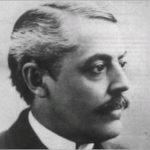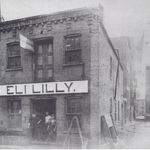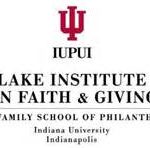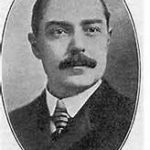Benevolence through philanthropy has sacred roots.
 Hoping to help improve the character of the American people, Eli Lilly founded the Lilly Endowment in 1937. The Indianapolis philanthropic organization’s mission includes community, religious, and educational enhancement toward a virtuous citizenry; an admirable goal, a wish in constant need of fulfillment. Eli’s succeeding years found him focused on character development based on virtue through the interconnectivity of communities. Learning, Lilly believed, should begin with listening. Listening is the basis and beginning of proper education. But to whom should one listen? Reading from the earliest Lilly Endowment’s annual reports demonstrates that a Christian influence is prominent.
Hoping to help improve the character of the American people, Eli Lilly founded the Lilly Endowment in 1937. The Indianapolis philanthropic organization’s mission includes community, religious, and educational enhancement toward a virtuous citizenry; an admirable goal, a wish in constant need of fulfillment. Eli’s succeeding years found him focused on character development based on virtue through the interconnectivity of communities. Learning, Lilly believed, should begin with listening. Listening is the basis and beginning of proper education. But to whom should one listen? Reading from the earliest Lilly Endowment’s annual reports demonstrates that a Christian influence is prominent.
 Early gifts from the endowment included archaeology since Lilly believed the Christian New Testament was an integral document toward living a virtuous life. The ethos which sustains the Lilly Endowment has a forward focus. Thinking of the future through such awards as Giving Indiana Funds for Tomorrow (GIFT) spotlights building community foundations. In a spirit of innovation combined with help, Lilly Endowment is one of the few gifting organizations which focuses so much attention on religion.
Early gifts from the endowment included archaeology since Lilly believed the Christian New Testament was an integral document toward living a virtuous life. The ethos which sustains the Lilly Endowment has a forward focus. Thinking of the future through such awards as Giving Indiana Funds for Tomorrow (GIFT) spotlights building community foundations. In a spirit of innovation combined with help, Lilly Endowment is one of the few gifting organizations which focuses so much attention on religion.
 The Lilly Endowment grew from fertile Christian soil from the life of Eli Lilly. He created the Lilly Pharmaceutical Company which was established in Indianapolis, Indiana. Gifting from the endowment focused on the city which gave Lilly Pharmaceuticals its start. In the 1980’s and beyond Lilly Endowment contributed to building the infrastructure of Indianapolis. The city became known for its sports teams; amateur sports was also benefited by Lilly financial grants. Museums, theatres, and the Indianapolis Convention Center were all assisted by Lilly’s largesse. Contributions to religious and educational focus, however, remained the focus of Lilly’s giving.
The Lilly Endowment grew from fertile Christian soil from the life of Eli Lilly. He created the Lilly Pharmaceutical Company which was established in Indianapolis, Indiana. Gifting from the endowment focused on the city which gave Lilly Pharmaceuticals its start. In the 1980’s and beyond Lilly Endowment contributed to building the infrastructure of Indianapolis. The city became known for its sports teams; amateur sports was also benefited by Lilly financial grants. Museums, theatres, and the Indianapolis Convention Center were all assisted by Lilly’s largesse. Contributions to religious and educational focus, however, remained the focus of Lilly’s giving.
 Benevolence through philanthropy has its sacred roots in caritas the Latin word for “charity.” The Lilly Endowment champions charity through its spotlight both on progress as well as justice. To alleviate suffering is one thing, to prompt fairness toward equitable equality is something altogether different. Philanthropic giving such as accomplished by the Lilly Endowment is not simple altruism but is driven by a philosophy, in this case, a decidedly Christian loyalty.
Benevolence through philanthropy has its sacred roots in caritas the Latin word for “charity.” The Lilly Endowment champions charity through its spotlight both on progress as well as justice. To alleviate suffering is one thing, to prompt fairness toward equitable equality is something altogether different. Philanthropic giving such as accomplished by the Lilly Endowment is not simple altruism but is driven by a philosophy, in this case, a decidedly Christian loyalty.
 Giving to others necessitates that an individual or institution such as the Lilly Endowment nurture ideals which are: (1) voluntary (2) missionally directed (3) others-centered (4) beneficial over the long-term (5) relationally based (6) for the common good (7) systemic in both approach and application (8) modeled by mentors (9) multiplied through organic, local associations, and (10) supporting of volunteer organizations which benefit a wider community. Since 1937 the Lilly family fortune has created a charitable trust grown in a community for the benefit of other communities.
Giving to others necessitates that an individual or institution such as the Lilly Endowment nurture ideals which are: (1) voluntary (2) missionally directed (3) others-centered (4) beneficial over the long-term (5) relationally based (6) for the common good (7) systemic in both approach and application (8) modeled by mentors (9) multiplied through organic, local associations, and (10) supporting of volunteer organizations which benefit a wider community. Since 1937 the Lilly family fortune has created a charitable trust grown in a community for the benefit of other communities.
 The pharmaceutical business—specifically the creation and manufacture of important drugs such as insulin—established the basis for civitas wealth that generated the Lilly Endowment. The first Eli Lilly was a civic minded man building a children’s hospital. Known for his philanthropic spirit, his others-centered view of life was passed on to his descendants. The Lilly family provided early and continued oversight of the original endowment.
The pharmaceutical business—specifically the creation and manufacture of important drugs such as insulin—established the basis for civitas wealth that generated the Lilly Endowment. The first Eli Lilly was a civic minded man building a children’s hospital. Known for his philanthropic spirit, his others-centered view of life was passed on to his descendants. The Lilly family provided early and continued oversight of the original endowment.
 In succeeding years, leadership passed to leaders who continued the Lilly family’s mindset. John M. Mutz, former lieutenant governor for the state, expanded Lilly’s financial resources and its reach into city and state development. N. Clay Robbins, a Sunday school teacher and lawyer specializing in non-profit groups, broadened the endowment’s benefits toward higher education. The Lilly School of Philanthropy at Indiana University and IUPUI (Indiana-University Purdue-University Indianapolis) has its roots in Lilly Endowment. Voluntary action for the public good is the missional ethos which permeates the school’s academic programs, research, Women’s Philanthropy Institute, and the Lake Institute for Faith and Giving.
In succeeding years, leadership passed to leaders who continued the Lilly family’s mindset. John M. Mutz, former lieutenant governor for the state, expanded Lilly’s financial resources and its reach into city and state development. N. Clay Robbins, a Sunday school teacher and lawyer specializing in non-profit groups, broadened the endowment’s benefits toward higher education. The Lilly School of Philanthropy at Indiana University and IUPUI (Indiana-University Purdue-University Indianapolis) has its roots in Lilly Endowment. Voluntary action for the public good is the missional ethos which permeates the school’s academic programs, research, Women’s Philanthropy Institute, and the Lake Institute for Faith and Giving.
 Josiah K. Lilly famously intoned that leaders built men not businesses adding the necessity of being conservatively progressive; not setting aside foundational ideals but wedding them with transitions necessary for changing times. The Lilly Endowment has led emphases on community, education, and religion based on its century old mission. The Christian virtues the Lilly family had in mind both for their company and later their philanthropic pursuits show eternal commitments should be woven through temporal concerns.
Josiah K. Lilly famously intoned that leaders built men not businesses adding the necessity of being conservatively progressive; not setting aside foundational ideals but wedding them with transitions necessary for changing times. The Lilly Endowment has led emphases on community, education, and religion based on its century old mission. The Christian virtues the Lilly family had in mind both for their company and later their philanthropic pursuits show eternal commitments should be woven through temporal concerns.
“Lilly Endowment”© is one of 22 articles included in the History of Christianity in the United States (Rowman & Littlefield) by Dr. Mark Eckel, president of The Comenius Institute.
References and Resources
Daloz, Laurent A. “Can generosity be taught?” Essays on Philanthropy, no. 29. Indianapolis, IN: Indiana University Center on Philanthropy, 1998.
The Lilly Endowment. https://lillyendowment.org/ Accessed 25 January 2015.
Moody, Michael P. “Pass It On: Serial Reciprocity as a Principle of Philanthropy.” Essays on Philanthropy no. 13. Indianapolis, IN: Indiana University Center on Philanthropy, 1994.
“Indiana University to Name Nation’s First School of Philanthropy in Honor of Lilly Family,” 10 April 2013. http://generosityresearch.nd.edu/news/39110-indiana-university-to-name-nation-s-first-school-of- philanthropy-in-honor-of-lilly-family/ Accessed 25 January 2015.
Wisely, D. Susan. “Foundations Relationship to its Public: Legacies and Lessons for the Lilly Endowment.” Essays on Philanthropy, No. 17. Series on Foundations and Their Role in American Life. Indianapolis, IN: Indiana University Center on Philanthropy, 1995.

